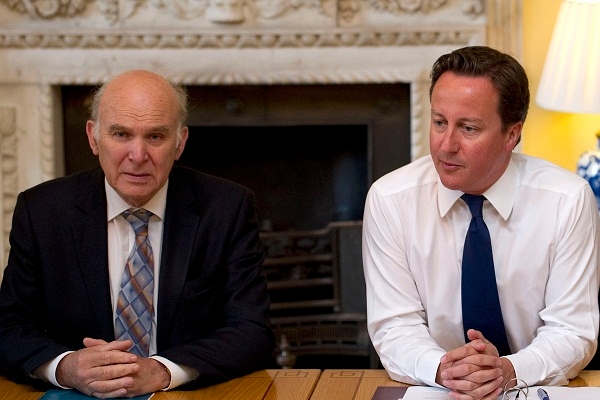The contents of the coalition’s grand bargain on growth will become clearer this week. On Monday, Michael Fallon will announce plans to scrap half of all existing regulation, and then later in the week Vince Cable will detail the changes the coalition will make to employment law. This combined with the planning reforms announced last week and the expected initiative on mini-jobs is the Tory supply side of the bargain.
But there’s also an interventionist Liberal Democrat side to it, with the coalition announcing this week that it is adopting an industrial strategy. This is something that Vince Cable and his Tory deputy David Willetts have been pushing for over the last year or so. Cable also looks to set to get his way on a small business bank; there’s growing optimism among Liberal Democrats that that they’ll be able to announce it at their conference in a fortnight’s time.
This is all in stark contrast to a few months ago when the two sides of the coalition were blocking each other’s growth policies. I’m told that the continuing recession has broken this log jam, as one minister puts it ‘they’ve been spooked into action.’
How much difference these policies make remains to be seen. But the coalition is in a better place on growth than it has been for some time. It, at least, has some sort of strategy now.
At the top of government, they believe that the next set of GDP figures will show that Britain is out of recession. They hope that this will give their drive for growth some momentum and help turn the political tide. If they’re right, then the political pressures on the coalition will begin to ease. But if they are wrong, these pressures will become far more acute.







Comments